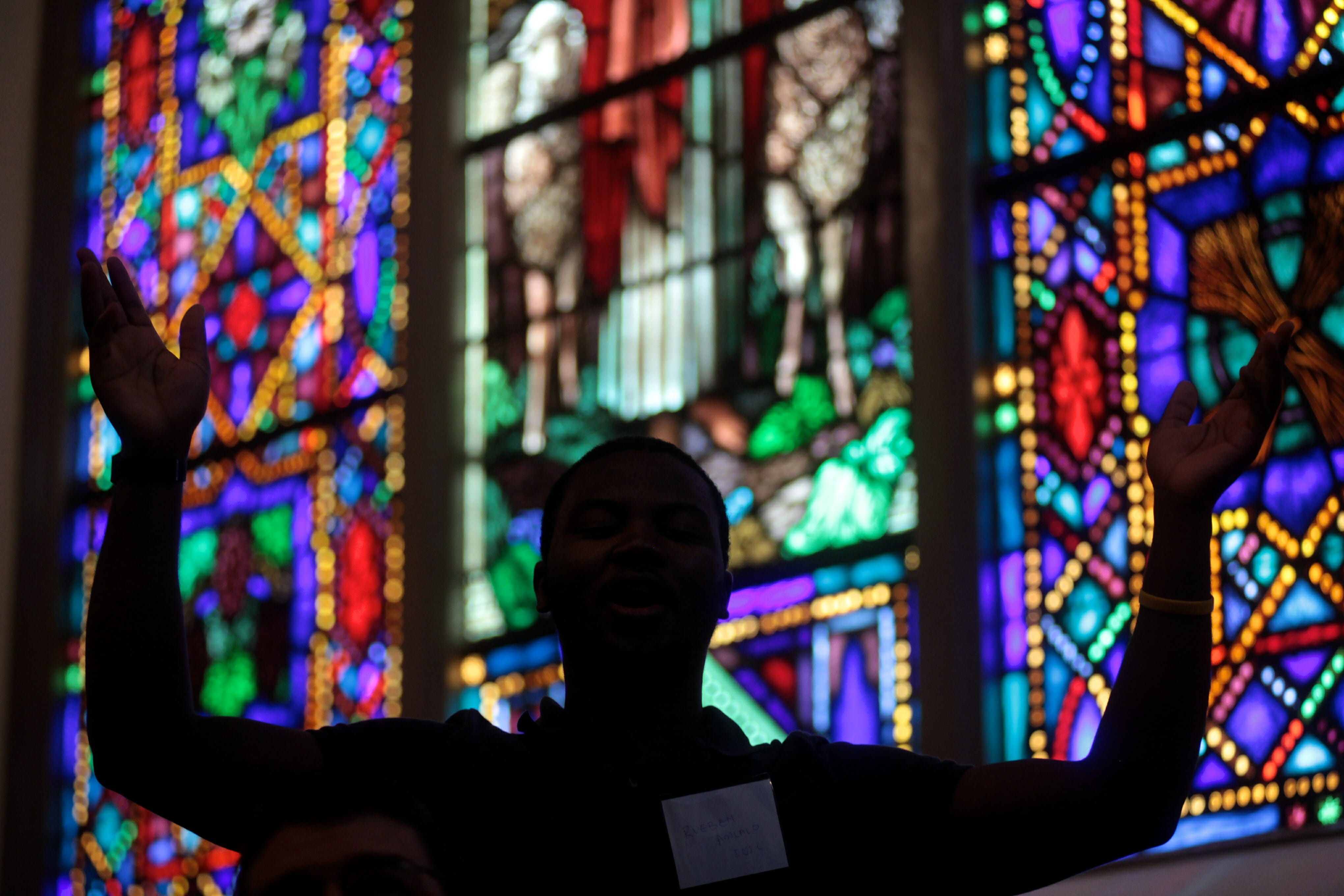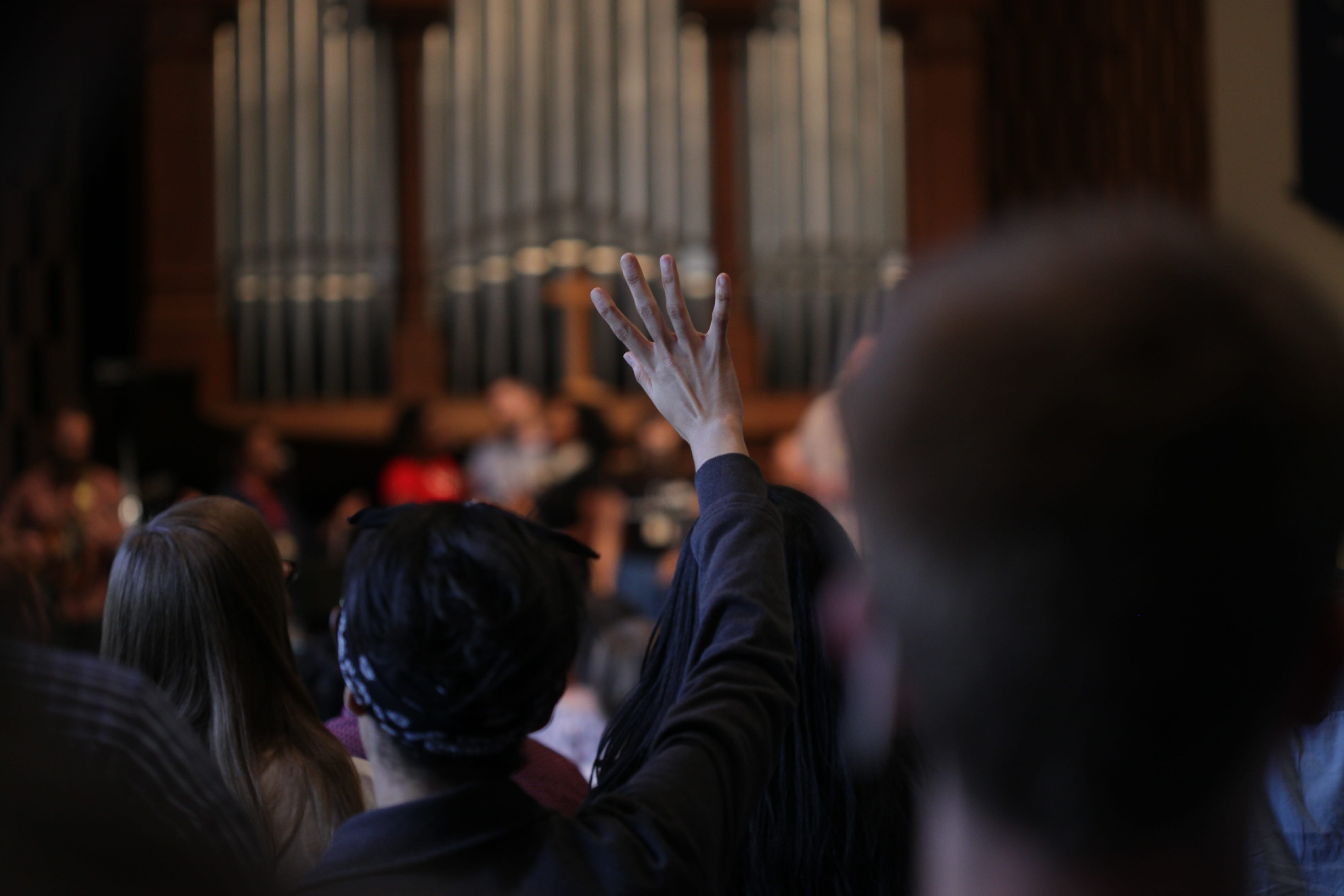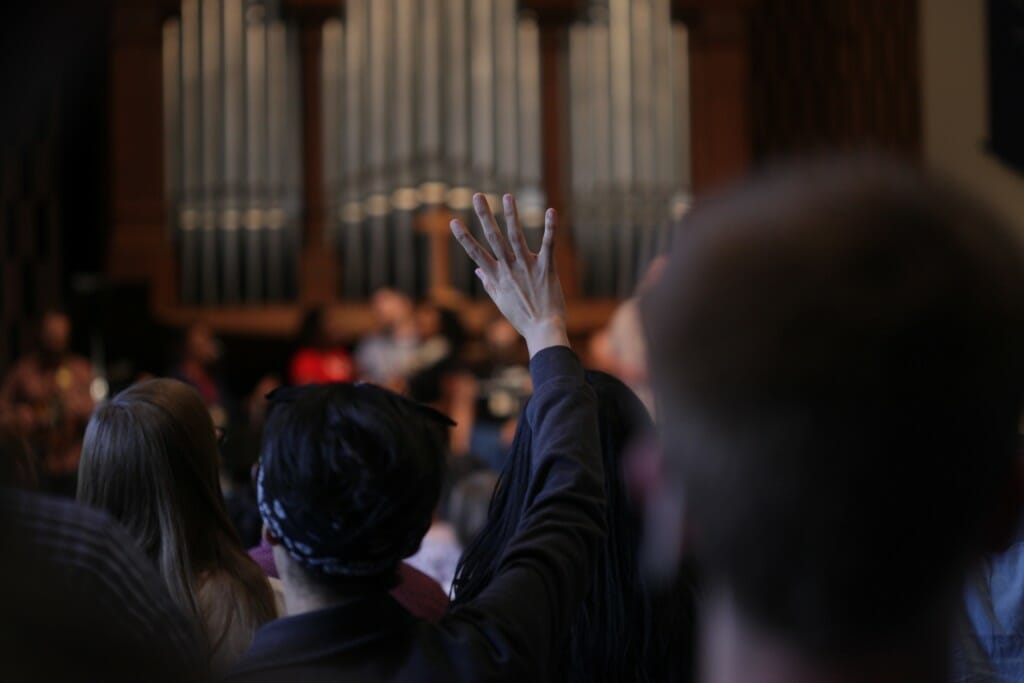We celebrate our intercultural reality at South City Church in a number of ways throughout the year, and this month is no different! There are endless opportunities to learn more about the contributions and freedom struggles of Black Americans. Church leadership will be hosting an informal conversation on living as a family, Sunday February 21st after worship.
During our worship time this month, we continue to hear and engage in God’s story through the songs of our people. We will hear music written by brothers and sisters like Liz Vice and Richard Smallwood, and we will hear from unknown composers who did not always write down the music they wrote. These women and men gave us beloved songs long ago that grew into popularity so quickly the authorship is hard to trace. Other tunes were composed in community, with different groups of worshippers developing new styles and alternate lyrics that best fit their context. For instance, us St. Louis folks sing “King Jesus is Listening” differently than our Caribbean church families. One of these “collaborative” gospel tunes is the one to which many black churches set the text “Praise God from Whom All Blessings Flow”. We will end our worship time with that tune each Sunday this month.
Why would a white church sing the doxology of the black church tradition?
We end most worship services with the doxology. In a moment when you’d think “we should all sing one tune, one common lyric” we sometimes sing the white tradition’s doxology and sometimes that of the black tradition. Does that make sense? Yes.
We sing each other’s traditions because we partake in ONE shared tradition. We sing black gospel music for the same reason we sing songs in Spanish. We sing songs in Lingala and Swahili for the same reason we sing songs from Stewart Townend and Sandra McCracken. No one tradition is THE tradition. In Jesus, by the Holy Spirit, we are one! A new family, represented by countless experiences and expressions. This means that seemingly “unlikely allies” in latin and hispanic, asian, native, black and white church traditions now have a spiritual predisposition of delight toward each other, that we now have the honor of seeing each other and enjoying fellowship. Now, when we are tempted to dismiss or despise each other’s traditions, the truth is it’s become more difficult to remain apart. We are drawn to one another because Jesus drew us to himself.
I wish we knew more doxologies! We remember and enjoy multiple tunes, and Christianity boasts multiple expressions. This is not about numbers or representation. This is about longing to be one with all the saints; forming habits of righteous hunger that lead us to praise God more than we praise traditions. It is good for us to know more about the people whose experiences differ from ours. What neglect we suffer from willing ignorance! What disservice we do to our own tastes when we forbid others to speak our hearts in a new tongue.
If I know only one song, I might accidentally convince myself that no one knows it better. Or worse, I might convince someone else that their song has no worth.
Interestingly, a strong resemblance to the tune Duke Street (credited to Englander John Stratton and made famous when it was paired with Isaac Watts’ text “Jesus Shall Reign Where’er the Sun”) makes the “black doxology” more accessible to white worship traditions than many of us may think. With each line of the text – the same text used in most English speaking traditions, attributed to Thomas Ken in1674 – the tune builds into a jubilant swell. How marvelous, how deeply ironic, that one of the youngest ethnic groups in the world, and certainly the youngest in US history, would develop worship practices that center on adoration, victory and rejoicing.
This despite the fact that Black Americans almost always trace their roots to the eras in which we were oppressed by people whose hymn texts – and often hymn tunes – were identical to our own. Dr. King said “our fates are intertwined”. Oh glory, what a challenging, redeeming word.
Let us wholly embrace this adjoined destiny. Let us rehearse our oneness in and outside of the sanctuary, so that we might testify of the God who reconciles humanity to himself, and to one another. Church families in the US – especially those who share the same language – must learn to honor each other if we are ever to achieve the greater goal of expressing unity with our family across the globe.



